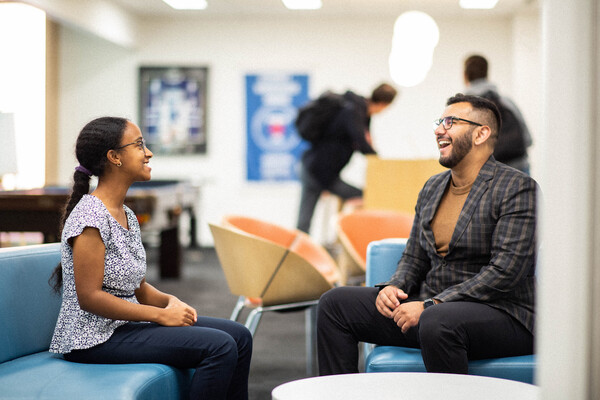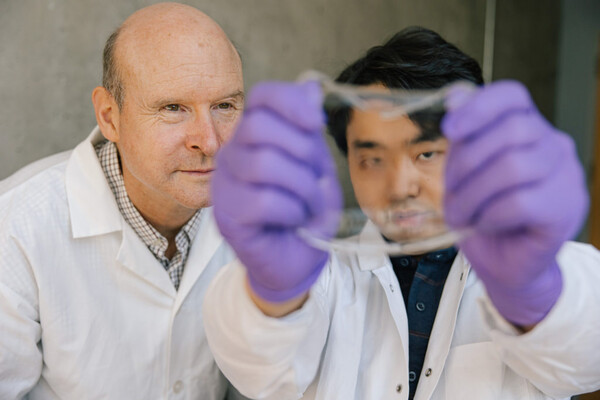U of T Medicine Remembers Mohammad Asadi-Lari and Mohammad Amin Jebelli
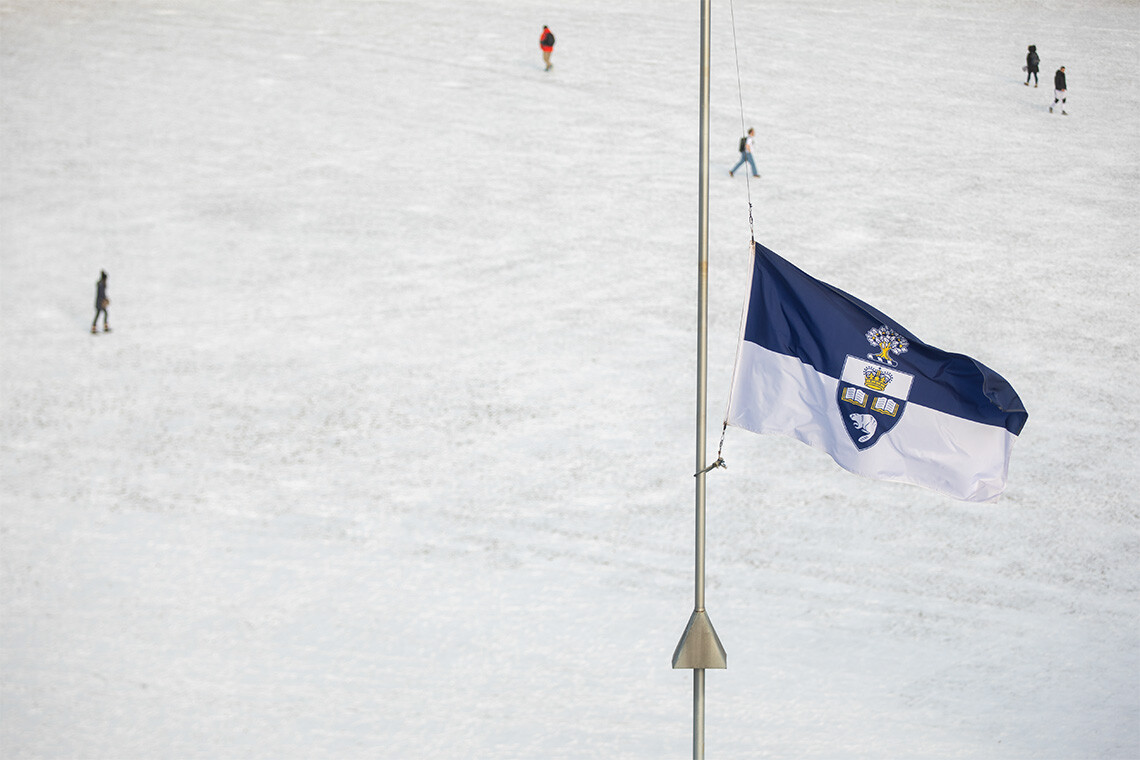
Ciara Parsons and Gabrielle Giroday
The Faculty of Medicine at the University of Toronto is remembering two students who were passengers on Ukraine International Airlines Flight PS752, which crashed on January 8 outside of Tehran, Iran. Known for their curiosity and commitment to discovery, the two students were among the six members of the University of Toronto who were aboard the flight.
"On behalf of the Faculty of Medicine, I extend my deepest condolences to the family and friends of Mohammad Asadi-Lari and Mohammad Amin Jebelli. They made an indelible mark on the life of this Faculty and the world has lost two remarkable individuals," said Professor Salvatore (Sal) Spadafora, Acting Dean of the Faculty of Medicine.
U of T Medicine writers Ciara Parsons and Gabrielle Giroday learned more about these two students.
__
Mohammad Asadi-Lari is remembered by his peers as a deeply compassionate individual who was known for lifting people up when they were feeling down. Active in many projects and organizations, it was clear to many that Asadi-Lari was a change maker in the making.
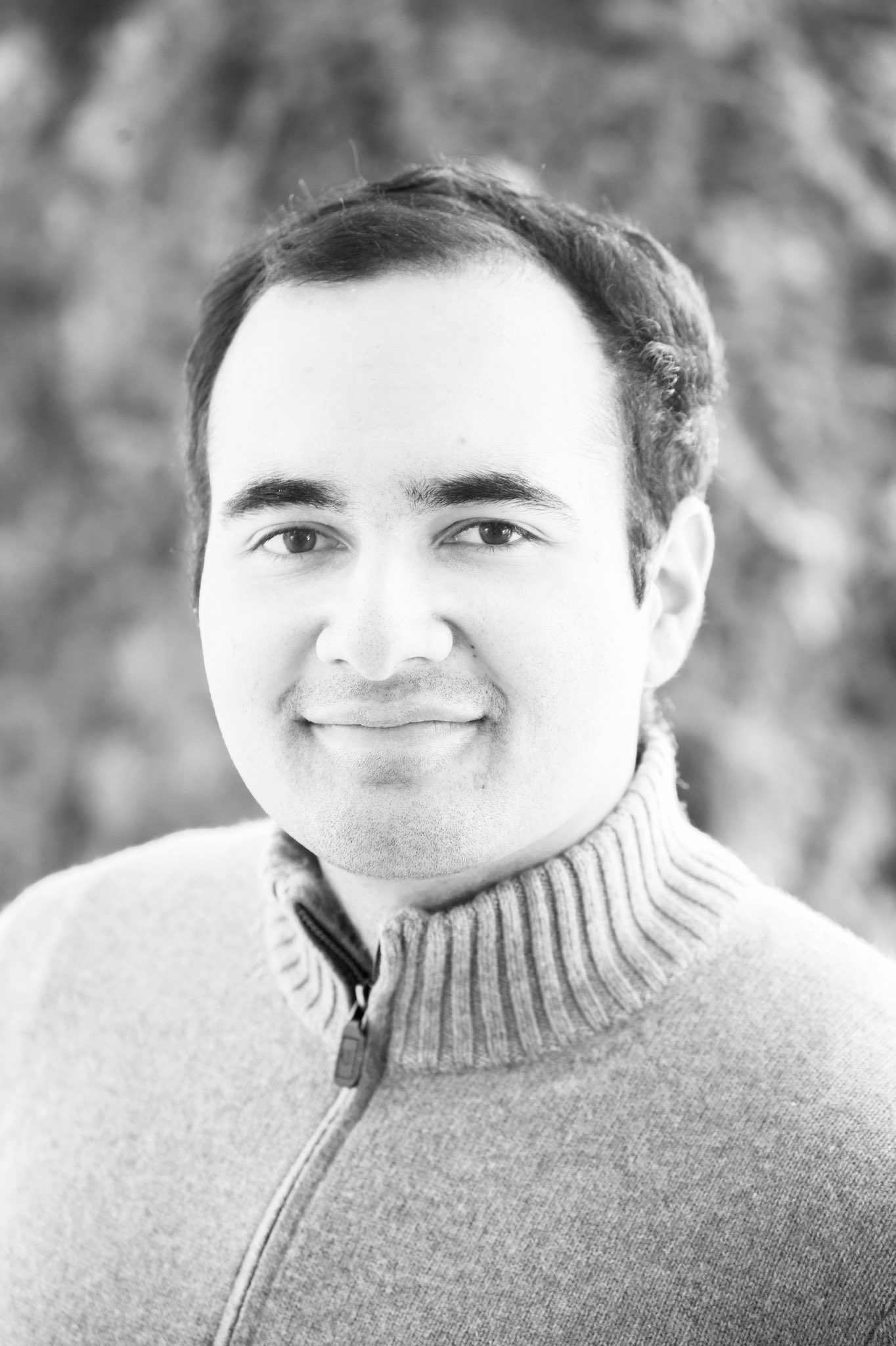 A MD/PhD student at the Faculty of Medicine, Asadi-Lari was in the second year of the eight-year program. He was traveling back to Toronto after visiting family in Iran aboard Ukraine International Airlines Flight PS752 when it crashed. Also with him was his sister, Zeynab Asadi-Lari, who was a student at the University of Toronto Mississauga.
A MD/PhD student at the Faculty of Medicine, Asadi-Lari was in the second year of the eight-year program. He was traveling back to Toronto after visiting family in Iran aboard Ukraine International Airlines Flight PS752 when it crashed. Also with him was his sister, Zeynab Asadi-Lari, who was a student at the University of Toronto Mississauga.
Among his many accomplishments was helping to found the Canadian Association for Physician Innovators and Entrepreneurs (CAIPE). Reflecting on Asadi-Lari’s legacy, Dr. Alexandra Greenhill, Board Chair of CAPIE, said “…his incredible mind, heart and energy will be missed. Being a truly gifted forward-thinker and systems-thinker, we know he would want us to focus on the future, on innovating and on contributing—so let's remember him for all the ‘can-do’ and ‘must-do’ attitude he brought into the world.”
Youth mentorship was also dear to Asadi-Lari and an activity he was actively engaged with—he even gave a TEDxTalk this past February about the ways in which we can empower youth. He served as the managing director of STEM Fellowship since 2015, which is a youth-led non-profit organization he co-founded that works to create mentorship and experiential learning opportunities for young STEM researchers and innovators.
“Mohammad Asadi-Lari was a remarkable young man who touched many in his short life. He always gave much more than he ever expected in return. It is a great loss for all of us and for his family who have lost two of their children,” said Dr. Patricia Houston, Vice Dean of the MD program at the University of Toronto.
Asadi-Lari was involved in numerous youth-focused activities through his efforts with the Canadian Commission for the United Nations Educational, Scientific and Cultural Organization (UNESCO); the Canadian Institutes for Health Research; the Canadian Red Cross; Science World British Columbia; the non-partisan, civic-engagement group ‘Apathy is Boring’; and the World Economic Forum to name just a few of the many organizations he served over the last few years.
On campus, Asadi-Lari was the vice president of global health with the University of Toronto’s Medical Society and helped to advocate for matters of international health, aid and equity in this role.
Asadi-Lari‘s accomplishments were recognized with numerous national and international scientific Olympiad medals, a 3M National Student Fellowship, a Governor General’s bronze academic medal, a University of British Columbia Faces of Today Leadership award, a Society for Scholarly Publishing Fellowship and being included as a 2018 Royal Bank of Canada (RBC) Top 25 Immigrant Finalist.
– By Ciara Parsons
Mohammad Amin Jebelli – or Amin, as he was known to his classmates at University of Toronto – was well-known in a tight-knit group of students for his humility, kindness and his dedicated work ethic.
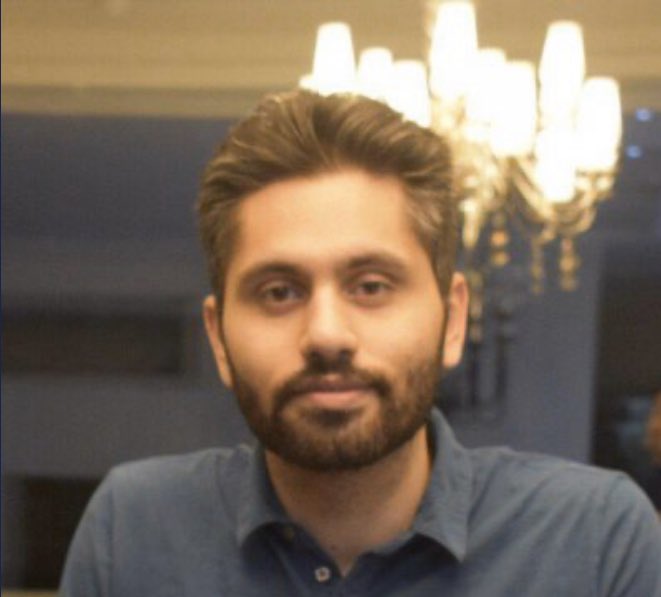 Jebelli, 29, had practised medicine and served as a medic in Iran, after graduating from the Tehran University of Medical Sciences with a doctorate in medicine.
Jebelli, 29, had practised medicine and served as a medic in Iran, after graduating from the Tehran University of Medical Sciences with a doctorate in medicine.
In Iran, his work took him to places where he was needed, leading him to volunteer as a family and emergency care physician and shadow doctors who had expertise in areas like cardiology and radiology. He also volunteered in primary schools to provide medical help screening for diseases.
In 2018, he came to Toronto to pursue a Master of Health Science in Translational Research, after doing a Skype interview from Tehran with the program’s director, Joseph Ferenbok.
The program is small – with only 21 students in Jebelli’s year – and Jebelli soon carved out a name for himself and built close friendships.
“This was a young man who was quiet, gentle, soft-spoken. He was bright and clever and asked good questions and was curious about the world,” says Ferenbok, who served as a mentor to Jebelli.
“All of us are completely devastated about his death.”
Jebelli embraced his life in Canada, and took to his studies with enthusiasm, at first commuting for classes from Waterloo, where he lived with an aunt and uncle.
His aspirations were expansive and he thrived in his studies, says Ferenbok. Through it, a passion for helping others shone through, say colleagues.
If there was a class presentation that went into the evening, Jebelli was the person who would stay late to help clean up after and do dishes, with one of his close friends.
“He did everything for everybody, and didn’t think of himself,” says Ferenbok.
Jebelli was due to graduate from the U of T program later this year, and was studying to do a Medical Council of Canada qualification exam this March so he’d have the ability to practice in Canada as a doctor.
He also had an interest in entrepreneurship and in helping people in his home country of Iran, and contemplated pursuing a PhD.
“He wanted to have impact on patients, so he was looking at how a biomaterial that he learned about in Canada could potentially be used to treat people in Iran with a specific type of medical condition,” says Ferenbok.
“During his practice in Iran, he noticed that there were a lot of patients that were being treated but suffered afterwards. This was a population he identified that hadn’t been addressed, this condition recurs and is very painful and uncomfortable, and he saw there might be an opportunity to use something that was built here to help in another domain to help patients.”
In an online biography for the program, Jebelli indicated he was also interested in cardiac imaging, and how that imaging could be used to diagnose cardiovascular diseases. Jebelli was applying for permanent residency in Canada, and was working on his own leadership abilities.
“He was bright and sensitive and sweet and kind. I think he saw Canada as an opportunity, the land of dreams and possibilities,” says Ferenbok.
Richard Foty, assistant professor at the TRP says Jebelli attended U of T because of an intense love of learning.
“You always had the sense he taking in everything you were saying. He was always listening, because he always wanted to learn more,” says Foty.
“There was an incredible depth to him.”
Jebelli had decided to carve his own path.
“Ultimately, in the big picture, he wanted to have positive impact on people’s health, but he wanted to do it in a way that wasn’t the typical trajectory for a physician. That’s why he came here. He was already a doctor,” says Foty. “But, he saw this as an opportunity to learn a different way to do it and approach it in a way where he might have the chance of having a larger impact. I think he would want to be remembered as a friend and as a brother, and someone who cared about the people around him and made the world a better place. His profession was a means of him doing that.”
– By Gabrielle Giroday
__
Feeling distressed? Find someone to talk to right now – and if there is an immediate risk, call 911.
Round-the-clock support:
- Students can speak to a trained crisis worker at any hour of the day: My SSP for U of T Students 1-844-451-9700. Immediate counselling support is available in 35 languages and ongoing support in 146 languages.
Other 24-7 supports available to students include:
- Good 2 Talk Student Helpline 1-866-925-5454. Professional counselling, information and referrals for mental health, addictions and well-being.
- Gerstein Crisis Centre 416-929-5200
- Distress Centres of Greater Toronto 416-408-HELP (4357)
- The Centre for Addiction and Mental Health at 250 College Street
- Anishnawbe Health Toronto Mental Health Crisis Line 416-360-0486
The following services are available to students on all three campuses:
- St. George campus: Health and Wellness Centre (416-978-8030), located at Koffler Student Services
- U of T Scarborough: Health & Wellness Centre 416-287-7065
- U of T Mississauga: Health & Counselling Centre 905-828-5255
Faculty and staff have access to 24-7 support through:
- The Employee & Family Assistance Program (EFAP), offered through Homewood Health, online and by phone at 1-800-663-1142
News

